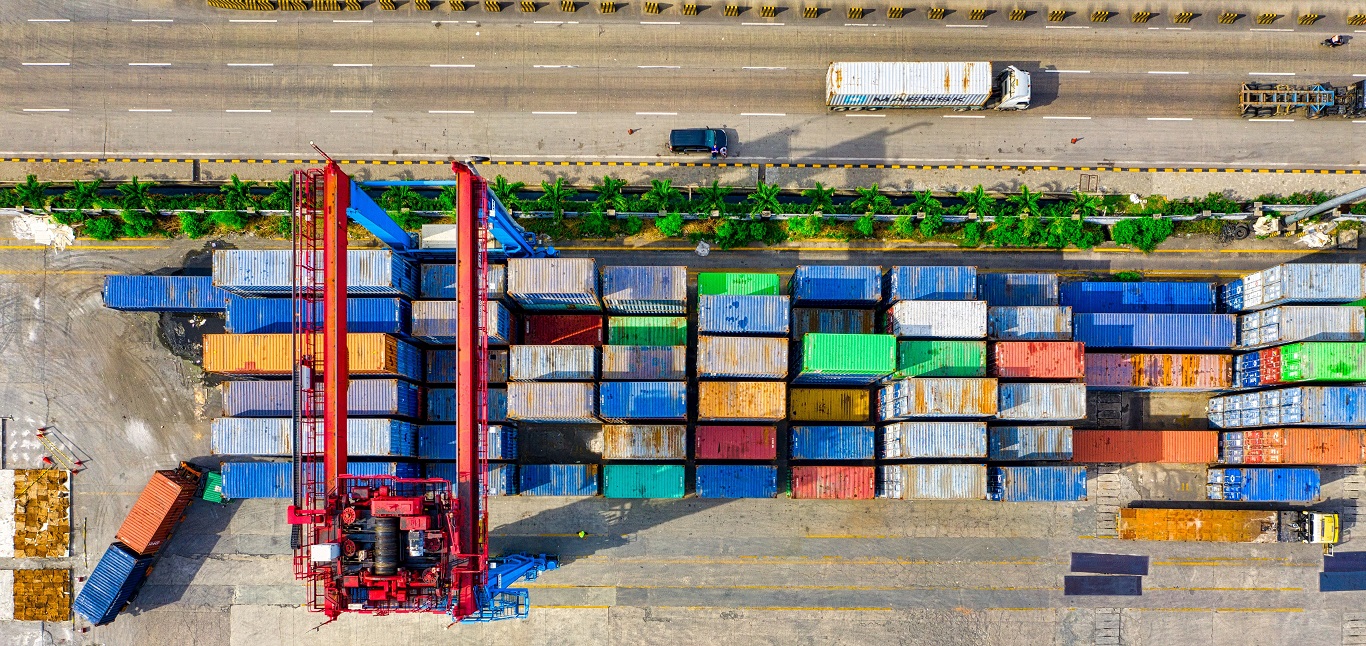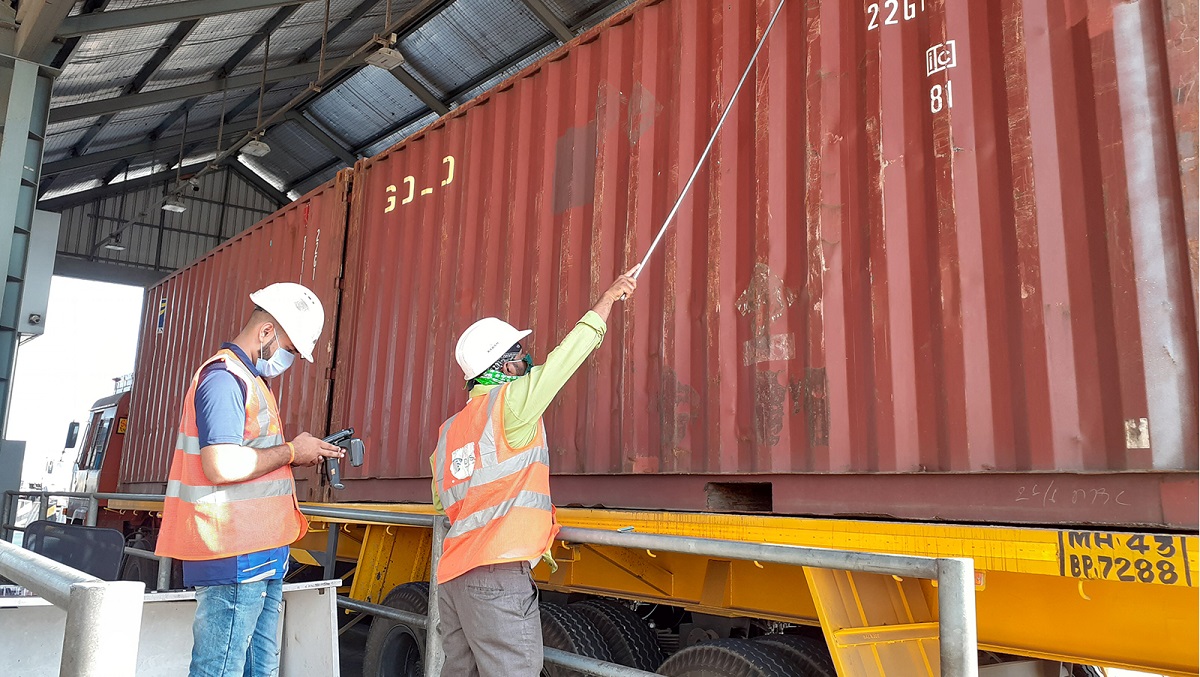India
Breadcrumb navigation
Ensuring uninterrupted visibility to Indian EXIM Logistics operations in the times of COVID-19


As a major stakeholder of one of the largest logistics tracking projects in India, NEC Corporation India (NECI) has the complete responsibility of development, deployment, management, maintenance and operations of the Logistics Data Bank (LDB) project.
Various ministries and authorities of Government of India such as the Ministry of Shipping, Ministry of Road Transport & Highways, Ministry of Commerce & Industry, Ministry of Railways, Central Board of Indirect Taxes and Customs, Indian Ports Association, CONCOR, etc. are the stakeholders as well as beneficiaries of the project.
NEC is currently handling 95% per cent of India’s container volume and has provided visibility to over 25 million EXIM containers. NEC is operational round the clock at 16 ports (i.e. 25 container terminals) across India.
NEC provides RFID technology for tracking and tracing of containers. RFID tags are installed on all containers arriving in India when the import journey commences. Over 600 operators are deployed at ports for performing the tagging operation and mapping the container numbers with a Tag Number. RFID readers are installed at Container Freight Stations (CFS), Inland Container Deports (ICD), Parking plazas, Toll plazas and empty yards across the country. Currently, NEC covers 135 CFSs/ICDs, 58 Toll Plazas and 14 empty yards by installing RFID readers. There are more than 4500 RFID readers deployed across India functioning 24/7.
Impact of COVID-19 on India’s EXIM Logistics:
While the Govt. of India declared a nation-wide lockdown to curb the COVID-19 spread, the seaports were asked to operate under essential services. However, the port operations would not be the same after the lockdown. Due to restrictions in transportation, importers were not able to get their containers shipped, resulting in containers piling up at the ports. At the same time, exports plummeted due to restrictions imposed across the world by different countries and reduced manufacturing activity. There was a severe manpower shortage, which made the operations more challenging. The government asked the shipping lines not to impose container detention charges on EXIM shipments, however, this turned into a nightmare for port operations as it disrupted the overall container movement cycle.

Under these uncertain, confusing, and chaotic situations, the trade had a greater demand for visibility and transparency. Similarly, the regulatory authorities were looking for real-time analysis of the developments so that corrective action could be taken. Amidst all these expectations from various stakeholders, NEC stood tall against all odds and continued its operations and provided its services.
NEC’s service continuity during the lockdown:
NEC continued tagging container surfaces at port terminals with RFID tags with the help of its port operators. Nearly 600 operators were working round-the-clock in 16 ports spread across 9 coastal states. The sudden declaration of the lockdown provided little time for the project team to be prepared with all required resources. However, the team quickly took some critical steps, which turned out to be the differentiator in continuing the operations as an essential service. The key activities performed were:
A) All the operators were provided with safety materials such as masks, gloves, sanitizers, etc.
B) Biometric access and daily briefing were discontinued.
C) New SOP designed so that operators could maintain social distancing while performing their jobs.
D) The operator deployment was optimized to 30% of the strength to comply with the guidelines.
E) Dedicated coordinators were identified for each port who worked closely with concerned port authorities in terms of shift timings, movement guidelines, entry passes, food arrangements, etc.
F) A joint task force team was created between NECI project team, NECI‘s system Integrator and the manpower providing entity for real-time tracking of the events at all 25 port terminals round the clock to report the incidents/events to the management.
G) Operators were voluntarily selected and permission was received from the police, district magistrate, local administrators, etc. as per the requirements and norms of the concerned states.
H) All operators who showed up for duty were motivated with incentives and food allowances.
I) Special arrangements were done for operator pick-up/drop facility as per the essential movement guidelines of the states.
J) Post categorization of the districts in Red, Orange and Green zones, the operations team re-worked the operator strength based on the total strength available.

The continuation of NEC’s operations during the lockdown demonstrates our commitment towards our clients, industry and the society at large. It has also proved that we are a trusted partner for logistics and other industries and have provided visibility to the trade as well as government authorities during these tough times. Now, as we are entering the post-COVID19 times, the lockdown restrictions will be lifted soon. We will, however, continue to take all the necessary precautions advised by the government and medical authorities and will try our best to keep our workers safe and serve the logistics industry, businesses and society at large. As a technology leader with more than a century of experience, NEC is committed to creating a brighter logistics eco-system in India.
Contact